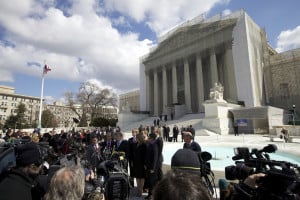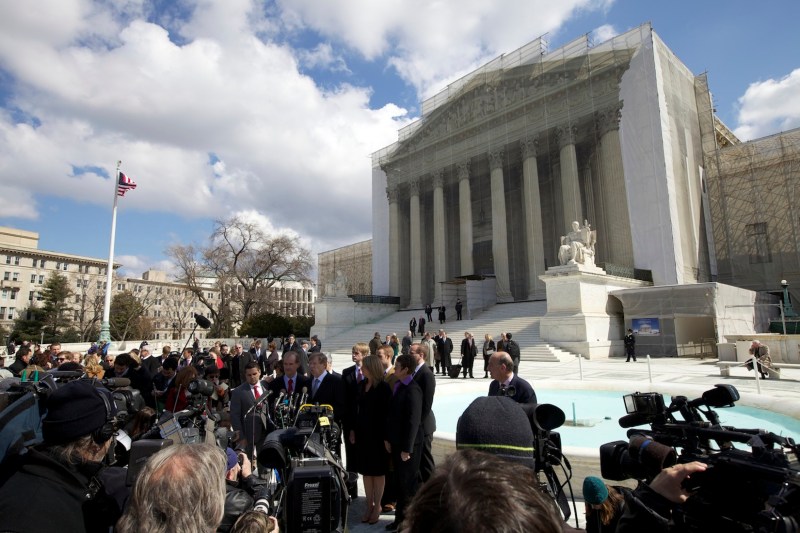“The Case Against 8” chronicles the lawsuit, spanning five years, to overturn Proposition 8 in California, which banned the previously legal gay marriage in the state in 2008. In particular, directors Ben Cotner and Ryan White followed the two lawyers leading the case, Ted Olson and David Boise, and the two same-sex couples — one female, one male — that became the face of the case, from their preparations for court, through the first case, the many appeals and the joyous celebrations that followed when Prop 8 was struck down in 2013. It’s a stirring and often tear-jerking story, but it leaves out some of the most interesting parts of the case, opting instead for a preachier, more triumphant tale than dealing with the harsher realities of the case.

We meet Berkeley residents Kristin Perry and Sandra Stier — mothers of four, two each from previous partners — who were married in California before 2008 and, when Proposition 8 was enacted, their marriage was legally annulled. They received a letter in the mail informing them their marriage was now invalid, offering to refund them the processing fees they had paid to marry. We also meet Paul Katami and Jeff Zarrillo, a gay couple from Burbank, Calif., who want to marry and refuse to accept domestic partnership because, as they articulate very well, to do so would be to accept being a second-class citizen. We hear about the discrimination they face from day to day, and we also hear their very conventionally relatable love stories. And our hearts break with theirs with the injustice of it all.
The two high-profile lawyers leading the case, the ultra-conservative Ted Olson and the ultra-liberal David Boise, were the perfect team for the case because they crossed party lines, thus effectively eliminating ideology from the question of gay marriage. In fact, these two men were the head of the opposing legal teams in Gore v. Bush 2000 in the Supreme Court case to determine whether the Florida ballots should be recounted. Their relationship is the most interesting in the film because it is the least conventional: It’s based on deep professional respect and admiration, which was cultivated when they fought this landmark case against each other. It’s an unlikely pairing, but the conviction with which they both fight the case against Prop 8 is inspiring. And the fact that the legal and PR team spend as much or even more time fighting the misguided LGBT leaders, who oppose Olson’s involvement, as they do fighting the oppressors is eye opening.
A film like “The Case Against 8” already caters to a niche market: Those of us who agree that everyone should be equal and that those in the LGBT community deserve all the same rights that straight people enjoy. We know we will feel for these people and be outraged by the injustices they faced. This is especially the case since the two couples were specifically chosen because they had been successfully vetted as easily relatable. The film is effective at taking us on their emotional journey.
But we never find out what the full vetting process was to choose these couples. There is utter silence on the fact that the couples are light skinned and if and how this factored into why they were picked. This seems an especially important oversight considering the constant comparisons made between gay rights and civil rights. The team explicitly states the need to find relatable couples, but they never articulate what specifically this means, and the result suggests they needed to find gay couples that matched the conventional portrait of the American ideal — white, educated, affluent and in a highly functional relationship — in order to be able to withstand the trial. But this skirts the important point that gays should be allowed to marry because they are human, not because they are good people. And much like “Fruitvale Station,” “The Case Against 8” forces us to root for these people because they are the right people rather than because they are people denied human rights. It’s understandable that this could not be part of the case, but it should have been part of the story of putting it together.
